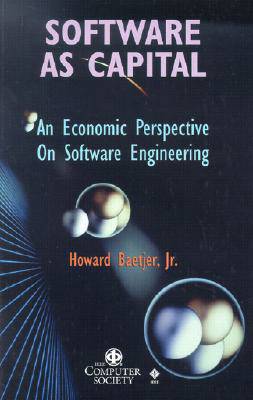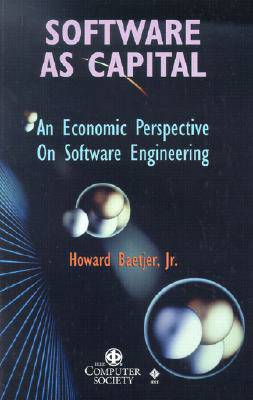
- Afhalen na 1 uur in een winkel met voorraad
- Gratis thuislevering in België vanaf € 30
- Ruim aanbod met 7 miljoen producten
- Afhalen na 1 uur in een winkel met voorraad
- Gratis thuislevering in België vanaf € 30
- Ruim aanbod met 7 miljoen producten
Zoeken
€ 96,45
+ 192 punten
Omschrijving
Software As Capital looks at software development through the eyes of a capital theorist, an economist fascinated by the constant evolution of new and better tools and processes. It asks, what is really happening in software development at the concept level? Why has programming practice evolved as it has? Why are certain tools and methodologies superior to others? What will it take to bring dramatic improvement to the industry? Answers lie in capital theory and the evolution of capital goods.
The concept that designing capital goods is a social learning process leads to interesting conclusions about software process models and methodologies. The book examines the main failing of the software industry when compared to other industries: the absence of an extensive division of labor for software components. It sets out the reasons for the problem, an outline for the solution, and the benefits that will result from its solution.
The concept that designing capital goods is a social learning process leads to interesting conclusions about software process models and methodologies. The book examines the main failing of the software industry when compared to other industries: the absence of an extensive division of labor for software components. It sets out the reasons for the problem, an outline for the solution, and the benefits that will result from its solution.
Specificaties
Betrokkenen
- Auteur(s):
- Uitgeverij:
Inhoud
- Aantal bladzijden:
- 206
- Taal:
- Engels
- Reeks:
- Reeksnummer:
- nr. 42
Eigenschappen
- Productcode (EAN):
- 9780818677793
- Verschijningsdatum:
- 10/11/1997
- Uitvoering:
- Hardcover
- Formaat:
- Genaaid
- Afmetingen:
- 155 mm x 234 mm
- Gewicht:
- 453 g

Alleen bij Standaard Boekhandel
+ 192 punten op je klantenkaart van Standaard Boekhandel
Beoordelingen
We publiceren alleen reviews die voldoen aan de voorwaarden voor reviews. Bekijk onze voorwaarden voor reviews.











